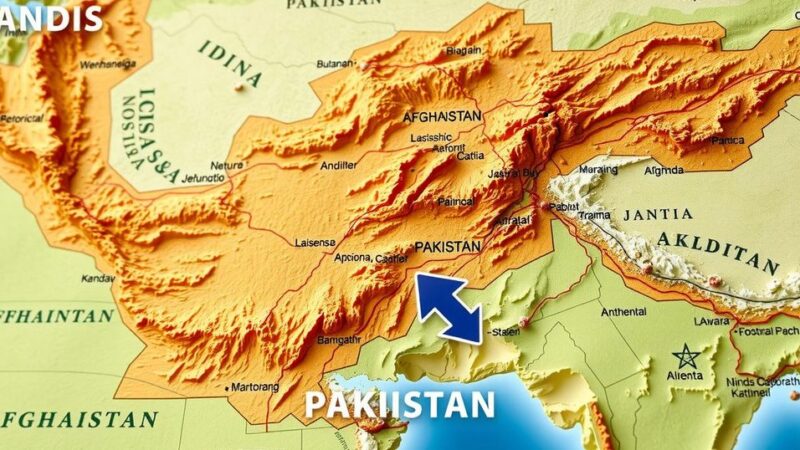Fierce battles around Sudan’s largest oil refinery have resulted in extensive fires, as army forces claim to have captured the site from the RSF. The ongoing conflict has serious health risks due to smoke and poses significant economic implications for Sudan and South Sudan. International condemnation continues as humanitarian crises escalate, with an increasing death toll and displacement of civilians.
Fighting near Sudan’s largest oil refinery has caused significant damage, with satellite images revealing extensive fires at the complex. Forces loyal to army chief Gen. Abdel-Fattah Burhan reportedly captured the refinery, which falls under Sudanese government and China National Petroleum Corp. ownership. This facility, essential for the military’s efforts in the ongoing civil war against the Rapid Support Force (RSF), has been a focal point of conflict.
Located approximately 60 kilometers north of Khartoum, the al-Jaili refinery had faced previous assaults. The RSF claimed control since April 2023 and fortified the site with landmines. Until Thursday, the refinery, which has a capacity of 100,000 barrels daily, remained functional. However, recent attacks have resulted in widespread fires, confirmed by NASA satellite data tracking wildfires.
Satellite imagery captured large sections of the refinery on fire, with flames visible from multiple locations. Thick smoke plumes stretched towards Khartoum, posing health risks including respiratory issues and increased cancer risk. The Sudanese military accused the RSF of deliberately igniting the fires as part of a destructive campaign against national infrastructure.
In response, the RSF alleged that Sudanese military aircraft dropped incendiary devices on the refinery, causing significant destruction. While both sides exchanged accusations, a multitude of videos emerged showing Burhan’s forces claiming to have entered the refinery. Sudan’s military spokesman asserted control of the site, although the RSF did not immediately refute this assertion.
China, a key player in Sudan’s oil industry, has not acknowledged the refinery incident, and the Foreign Ministry did not respond to inquiries. China’s involvement began after Chevron’s departure amid violence in the 1990s, although South Sudan’s independence in 2011 dramatically reduced Sudan’s oil reserves.
United Nations Secretary-General António Guterres expressed deep concern over the escalating fighting, particularly highlighting the implications of the oil refinery attack. He called on all parties to avoid actions leading to severe economic and environmental repercussions for Sudan and the region, noting the potential impact on both nations’ economies.
The refinery’s destruction would compel Sudan to rely on costly fuel imports, exacerbating the humanitarian crisis. The ongoing conflict has already led to over 28,000 fatalities and severe displacement, with dire consequences for food security in afflicted areas. The situation reflects a breakdown of previously established norms regarding the protection of national infrastructure.
Sudan’s stability has been undermined since the removal of dictator Omar al-Bashir in 2019. The subsequent military coup led by Burhan and the RSF’s Gen. Dagalo in October 2021 disrupted a transition to democracy. Allegations of atrocities against ethnic groups persist amid this complex conflict, worsened by international sanctions against military leaders for targeting civilians and impeding humanitarian access.
Sudan has been embroiled in a civil war since April 2023, with clashes between the Sudanese military and the RSF resulting in extensive casualties and displacements. The al-Jaili refinery, pivotal to the country’s oil production, has become a strategic asset amid the conflict. The geopolitical implications of the violence extend beyond Sudan, affecting international relations and economic stability in the region. The history of Sudan’s oil industry reflects a complicated relationship with foreign powers, particularly following the secession of South Sudan.
The recent fighting that has ignited fires at Sudan’s largest oil refinery highlights the severe consequences of the ongoing civil war between the Sudanese military and the RSF. With both factions exchanging accusations and the international community expressing concern, the destruction of such essential infrastructure may destabilize the nation further and has dire implications for health and economic conditions in Sudan.
Original Source: www.cnn.com







